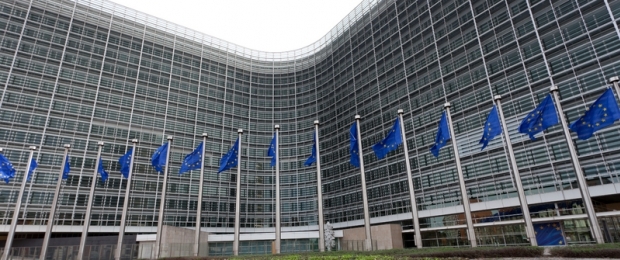
Policing public sector aid
Europe's powerful public sector trade unions are campaigning to protect public services from the disciplines of EU competition and state aid laws. They want the European Commission to draft a framework directive that would exempt 'services of general interest' - such as health, education or postal deliveries - from normal EU rules. But European businesses are fiercely opposed to this plan. In essence, this controversy is about how the Commission should balance its objective of upholding competition rules with the ability of member-states to shape public service provision. The best way forward is for the Commission to clarify existing rules rather than create new ones.
In recent years, EU member-states have steadily liberalised many economic sectors, such as energy and telecoms, which were previously state-owned. The European Commission has played its part by applying tough state aid rules which restrict the ability of governments to subsidise private firms that operate in these markets. The unions claim that recent European Court of Justice judgements have gone further, by calling into question the subsidies that member-states can pay not just in recently liberalised markets, but also for key public services, such as local buses. The unions argue that unless the EU explicitly exempts such services of general interest from EU competition laws, the Commission will gradually force member-states to liberalise all public services.
Several member-states back the unions. The French government insisted on a clarification of state aid rules in exchange for agreeing to energy liberalisation at the Barcelona summit in March 2002. Jacques Chirac even got Tony Blair and Gerhard Schröder to draft a joint letter calling on the Commission to respect the 'special nature' of services of general interest. Businesses, however, firmly reject this view. They point out that EU law already permits governments to pay subsidies to firms that carry out services which are socially important but uneconomic, such as delivering post in remote areas. Businesses claim that any suspension of state aid rules would simply end up protecting former monopoly providers, such as the French energy giant EdF, from meaningful competition. In the longer term, businesses and consumers would face higher prices, further eroding Europe's economic competitiveness.
The Commission must soon decide whether it will draft a framework directive. At the moment, it does not know what to do. On the one hand, competition commissioner Mario Monti has fought hard to crack down on state aid, in particular to operators in newly liberalised utility markets.
On the other hand, the Commission is obliged to follow up the request by the Barcelona European Council to review the rules for services of general interest. And politically, it does not want to be seen as forcing liberalisation on reluctant governments in sensitive areas such as health, education and transport.
The best solution is for the Commission to focus on clarifying existing rules, as the case for a new framework directive is unproven. The strongest argument for avoiding a directive is that member-states fund and provide public services in very different ways across the EU. A service that one country regards as the sole preserve of the state may be privatised in another. For example, in Denmark private firms provide emergency services, but the state directly manages all prisons. In contrast, while private prisons are commonplace in Britain, the state is the sole supplier of emergency services. Even France, while highly protective of state-owned services such as railways, has long taken a very liberal stance on its water supply. If the Commission tries to define catch-all rules in a single framework directive it risks diminishing this diversity.
Moreover, since existing EU law provides significant room for memberstates to provide and subsidise important services, a new framework directive is unnecessary. Under the current rules, the Commission must adhere to the neutrality principle, which means it cannot pass judgement on whether a private or public firm should provide a service. Moreover, it is the member-states, rather than the Commission, which define the services they regard as in the 'general interest'. And member-states are allowed to pay subsidies to such firms, provided this aid is proportionate to the costs of the service and does not impede crossborder trade. Consequently, the Commission has no powers to regulate many services, such as hospitals or swimming pools, which are supplied at a local level.
However, the Commission does need to clarify the impact of the recent Court of Justice judgements on its state aid rules. In the Altmark case of 2003, the Court ruled that a member-state could only subsidise bus services if the payment was fully transparent. The Court suggested that the best way to ensure transparency was through a tendering process. The Commission should support this principle and develop guidelines for national and regional governments. However, the Commission should state explicitly that member-states do not have to award such contracts on the basis of price alone - and that they can consider other social objectives.
Finally, the Commission should stress that its aim in policing state aid is to stop anti-competitive behaviour in markets already open to competition, not to force the liberalisation of all public services. For the foreseeable future, the Commission's focus will be on recently liberalised markets, such as telecoms and energy, where dominant players could misuse the subsidies they receive for providing a public service. For instance, the Commission has forced Deutsche Post to repay some of the aid it has received for running a universal postal system in Germany. The Commission successfully argued that Deutsche Post was using the money not to fund remote postal deliveries, but to buy rival companies abroad. The Commission would find it harder to take such action if a new directive exempted services of general interest from state aid rules.
Alasdair Murray was director of the economics and social policy unit at the CER (2000-2005).
